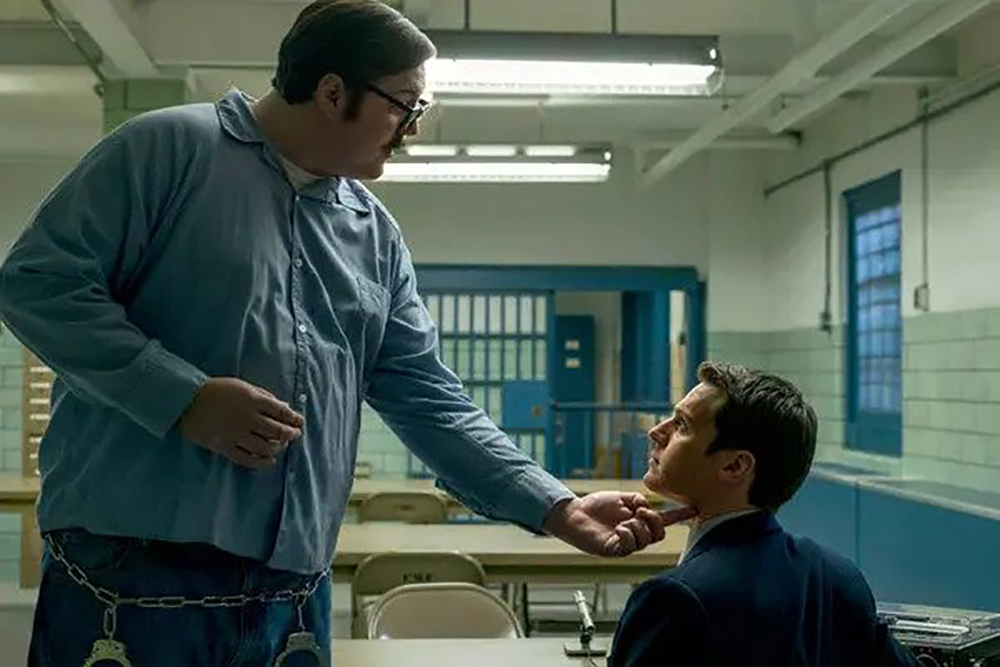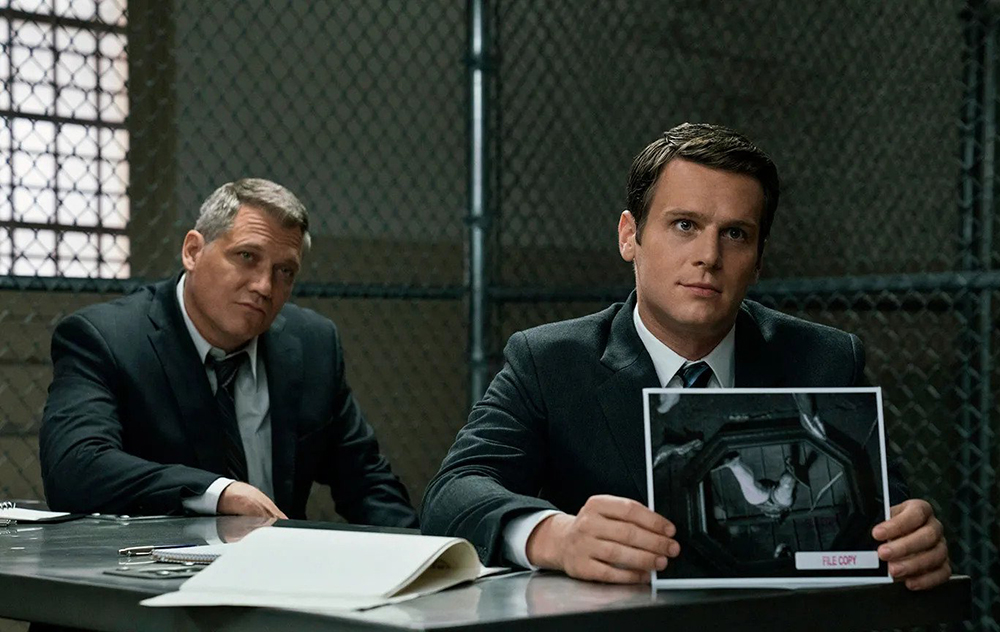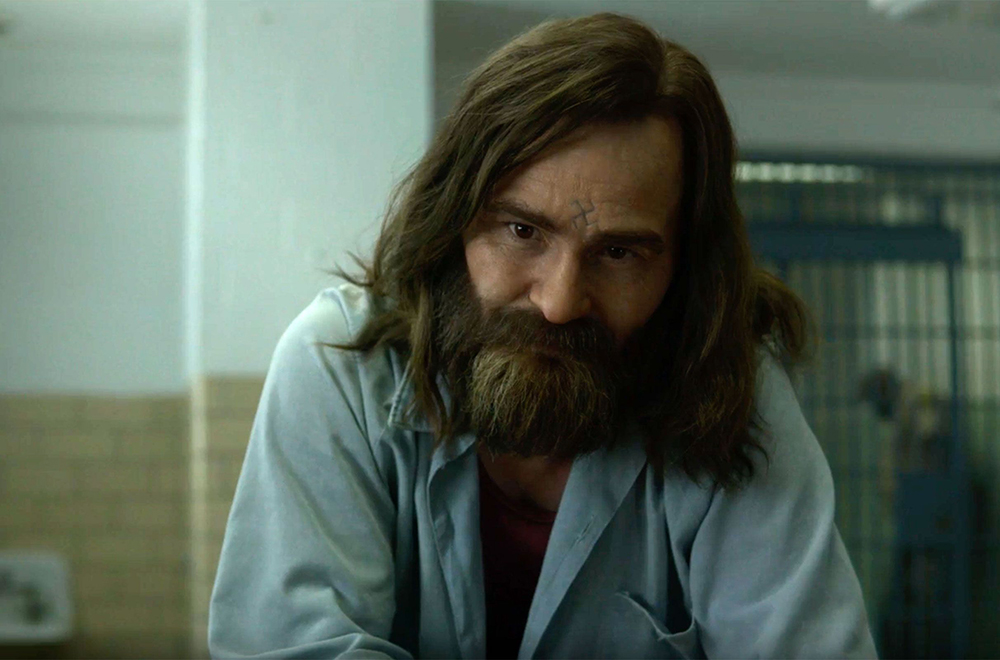David Fincher is considered as one of the giants of modern Hollywood cinema. Known for mostly of his thrillers, Fincher with his distinctive style meticulously captures the bleakness of human psyche through the detailed psychological analysis of characters. So, when I came to know about his Netflix show “Mindhunter,” I expected a lot from it. And surely, it doesn’t disappoint.
Though there are several directors of the show, Fincher is the most frequent one, and also served as the Executive Producer of the show alongside Charlize Theron. So, one can easily find the ‘Fincheresque’ techniques in the whole series. Whether it be the serial killers (“Zodiac” or “Se7en“), the dysfunctional families (“Gone Girl”) or the bleak environment in which the series takes place, it has all those traits. But what is the standout thing about “Mindhunter”is that it deals with all of these ideas in a psychoanalytical way.
The series is based on true events of the foundation of ‘Behavioral Science Unit’ in the FBI and the starting of criminal profiling during the late 1970s. The story unfolds from the perspective of two FBI agents Holden Ford and Bill Tench alongside with their associate Dr. Wendy Carr. Where Holden and Bill collect the necessary information from the monstrous criminals (like Ed Kemper, Jerry Brudos, Richard Speck, Charles Manson, etc.), Dr. Carr helps them to profile and categorize. Alongside with this investigative kind of narrative, the series showcases our heroes solving crimes, applying their gained knowledge about criminal psychology.
The first season beautifully establishes the characters and their surroundings, where the second season gets us into new heights. It showcases the profilers’ own psychological conflicts alongside their implications of studying criminal psychology into the field of crime (esp. the Atlanta Kids Murders).

Though it takes the path of a slow burn treatment at first, it gets more intense as time passes by. With a great screenplay by English playwright Joe Penhall, this series may not have the high octane drama or intense tensions on the surface but from core this series affect us than nothing before.
The series talks about various notorious serial killers. FBI agents Holden and Bill interview them to understand their thought processes behind their violent crimes. The creators never dig upon their backstories or portray their crimes. But rather they show how they are twisted from inside. We hear from them all of these events they have done and their own psychological interpretations about them. On-screen that affects our protagonists; and off-screen they affect the audience as we join the pieces of the puzzles from our own imagination driven by these twisted monsters. And that is hugely shattering and haunting.
Talking about the serial killers, we always have a great fascination about them for sure. For that reason, they taunt us. In Fincher’s opinion we are all perverts and thus we are hugely fascinated with them. This is the reason Holden gets with the idea of interviewing the serial killers in the first place and all of the people they tell about their work of interviewing these monsters; they all get pretty excited out of the allurement of hearing these stories of their crimes. These killers also know that and thus they try to publicize their wrongdoings by sending messages or puzzles to the press or to the police. They actually can read our minds and have the ability to affect them.

So that’s also the case with this series; but they affect us not from their violent crimes but the psyche behind that. Whether it is the cold and detailed confessions of Ed Kemper or the philosophical sermons of Charles Manson, it strictly points out our own twisted nature (which we can control but these killers cannot) and also the politics behind them.
Personally, I’ve never come closer in terms of a viewing experience that was so impactful in this deeper, psychological level. And the bleak, unsettling mood captured by cinematographers Christopher Probst and Erik Messerschidmt—alongside the haunting theme music by Jason Hill—complements them perfectly; it makes a visually stunning and unsettling piece of art.
The actors are the spine of the show, especially the actors portraying these twisted serial killers. Though they get limited screen time, they portray their roles with precision. Cameron Britton as Ed ‘Co-ed Killer’ Kemper and Damon Herriman as Charles Manson are menacing in their respective roles. Britton is as cold as ice with his deadpan face delivering lines about his character’s crimes and is just brutally disturbing. So is Herriman’s Manson. One of the most notorious criminals, Manson is mentioned from the first episode of the series. So, it is evident he has to appear sometime. And when he comes only for a sequence in the second season, the anticipation is huge. But Herriman do a stellar job which is equally shattering and satisfying.

Talking about the main leads, if the first season goes to Jonathan Groff who plays Holden Ford, the second season goes to Holt McCallany. Both are brilliant in their respective roles. They get a unique chemistry making them the true partners of crime. Their characteristic traits are just the opposite from each other. Holden is the young gun, impulsive and cocky whereas Bill is quite diplomatic; he is a family man and quite meticulous in his presentations. Their methods are also different. Holden can go further to reach his ultimate motif whereas Bill is very cautious about what he does. This constant tension between these two adds another layer in their relationship and these two actors play that perfectly. They complement each other with their performances and make them relatable to us.
Anna Torv as Dr. Wendy Carr is the least developed character among the leads. In the first season, she has nothing much to do other than to feed a cat and give us some knowledge about the criminal psychology. Though in the second season, her character has some substances with showcasing her personal life. But she never affects me as the other two lead characters do—and that is the biggest flaw of the whole series.
In my opinion, “Mindhunter” redefines the genre of psychological thrillers with the depiction of the neurosis of its characters. And that’s why it affects us and stays with us for a long time. It is sad after that after two seasons the show is on hold for further seasons indefinitely. But hopefully it will return with bigger and better prospects with the hands of the great David Fincher.


